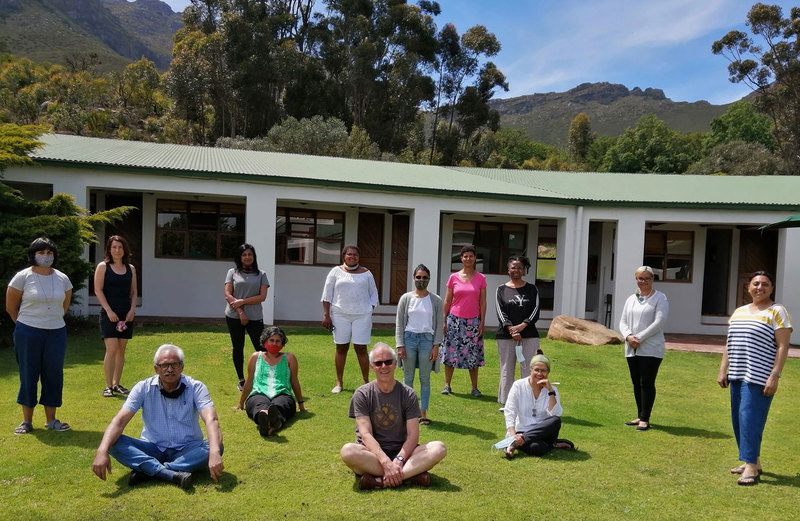Next Generation Professoriate: maturation and lockdown
13 April 2021 | Story Robert Morrell. Photo Ricardo Adams. Read time 4 min.
The Next Generation Professoriate (NGP) was officially launched in September 2015. It was conceived of as a mid-career transformation initiative with the goal of supporting UCT staff to achieve promotion to associate or full professor.
Since its inception, 30 members have been promoted either to associate professor or full professor. A further 21 members have achieved a National Research Foundation research rating.
The NGP began with 35 members drawn from all seven faculties. The eligibility criteria were for academics at the level of senior lecturer or associate professor who were black or female or had late entries into academia or interrupted careers.
Over time the cohort was grown to 45 members, which is its current complement. The cohort has also provided a home to those University of Cape Town (UCT) staff members who were awarded membership of the Humanities Mellon Inclusive Professoriate and those selected for the Future Professors Programme (FPP), an initiative of the Department of Higher Education and Training.
The focus of the NGP has been on supporting research productivity, which is often the most elusive goal. Attention is also given to the three other legs of UCT’s ad hominem promotion process: teaching and supervision; administration, management and leadership; and social responsiveness.
Creating a cohort
The challenge, according to NGP director Dr Robert Morrell, was to create a cohort out of an assemblage of individuals. At the outset, most NGP members did not know one another, and many had never met one another. Morrell sought to weld the group of individuals into an identifiable cohort which would create new networks within UCT and be marked by esprit de corps.
“UCT is a big and dispersed institution where many staff members work in isolation and in silos. I saw my role as producing bridges between the silos and creating a friendly, supportive and harmonious environment where collective triumphs and disappointments would build cohesion.”
The NGP under lockdown
2020 was a challenging year with COVID-19 and lockdown. The unity and focus of the NGP was kept up with monthly virtual teas and a weekly newsletter sent out by Morrell via email. These elicited responses that reported writing progress, teaching challenges and being down-in-the-dumps. Lockdown prevented the social interaction which is often a neglected contributor to feelings of belonging and well-being but, overall, the NGP survived and, one could say, matured.
In this newsletter, you’ll be introduced to new NGP member Dr Rethabile Possa-Mogoera (School of Languages and Literatures) and FPP member Dr Sharief Hendricks (Division of Exercise Science and Sports Medicine). We hear about the achievements of associate professors Ameeta Jaga, Zarina Patel and Afton Titus and the awards received by Associate Professor Amir Patel and Dr Mohohlo Tsoeu. We visit the NGP at a writing retreat, and we hear Associate Professor Lebogang Ramma’s reflections on being a head of department.
 This work is licensed under a Creative Commons Attribution-NoDerivatives 4.0 International License.
This work is licensed under a Creative Commons Attribution-NoDerivatives 4.0 International License.
Please view the republishing articles page for more information.






